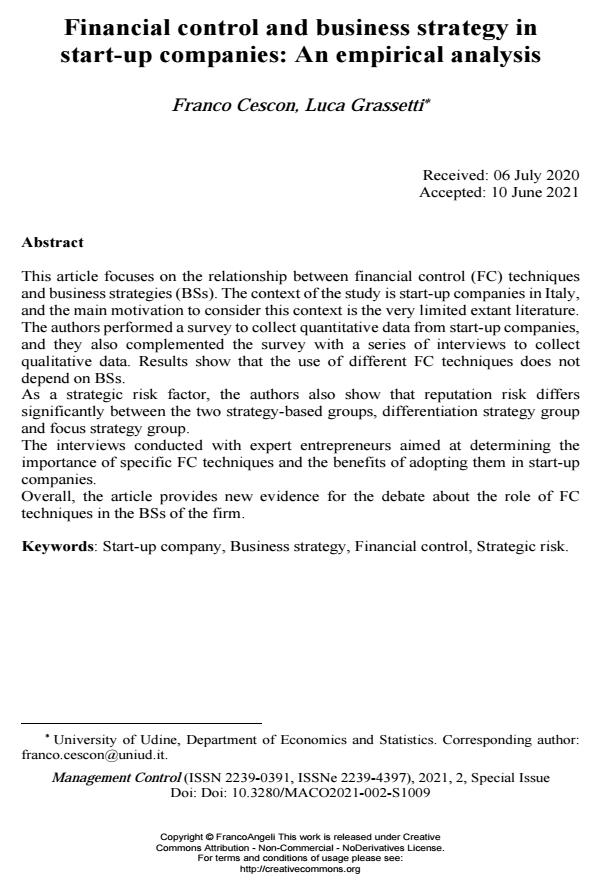Financial control and business strategy in start-up companies: An empirical analysis
Titolo Rivista MANAGEMENT CONTROL
Autori/Curatori Franco Cescon, Luca Grassetti
Anno di pubblicazione 2021 Fascicolo 2021/suppl. 2
Lingua Inglese Numero pagine 26 P. 189-214 Dimensione file 287 KB
DOI 10.3280/MACO2021-002-S1009
Il DOI è il codice a barre della proprietà intellettuale: per saperne di più
clicca qui

FrancoAngeli è membro della Publishers International Linking Association, Inc (PILA)associazione indipendente e non profit per facilitare (attraverso i servizi tecnologici implementati da CrossRef.org) l’accesso degli studiosi ai contenuti digitali nelle pubblicazioni professionali e scientifiche
This article focuses on the relationship between financial control (FC) techniques and business strategies (BSs). The context of the study is start-up companies in Italy, and the main motivation to consider this context is the very limited extant literature. The authors performed a survey to collect quantitative data from start-up companies, and they also complemented the survey with a series of interviews to collect qualitative data. Results show that the use of different FC techniques does not depend on BSs. As a strategic risk factor, the authors also show that reputation risk differs significantly between the two strategy-based groups, differentiation strategy group and focus strategy group. The interviews conducted with expert entrepreneurs aimed at determining the importance of specific FC techniques and the benefits of adopting them in start-up companies. Overall, the article provides new evidence for the debate about the role of FC techniques in the BSs of the firm.
Parole chiave:Start-up company, Business strategy, Financial control, Strategic risk.
Franco Cescon, Luca Grassetti, Financial control and business strategy in start-up companies: An empirical analysis in "MANAGEMENT CONTROL" suppl. 2/2021, pp 189-214, DOI: 10.3280/MACO2021-002-S1009